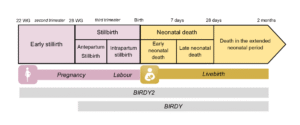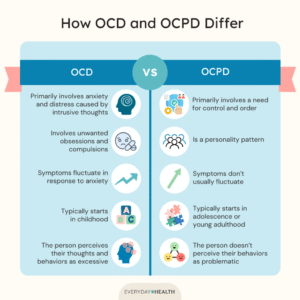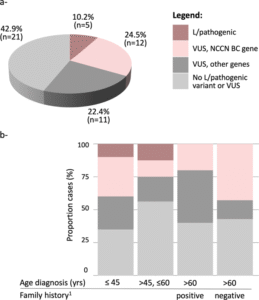Overcoming Sexual Performance Anxiety
Overcoming Sexual Performance Anxiety: A Comprehensive Guide
Introduction to Sexual Performance Anxiety
Sexual performance anxiety refers to the stress or worry experienced about one’s ability to perform sexually. This anxiety can occur during or even before sexual activity. Often confused with erectile dysfunction (ED), sexual performance anxiety is distinct from ED, which involves the physical inability to achieve or maintain an erection. While performance anxiety can sometimes contribute to erectile dysfunction, they are separate issues.
Understanding Sexual Performance Anxiety vs. Erectile Dysfunction
Erectile dysfunction is the inability to achieve or sustain an erection, whereas sexual performance anxiety is the mental pressure regarding sexual performance, whether related to erection, orgasm, or the overall experience. Both conditions can overlap, but they are distinct in their causes and treatment.
Common Symptoms of Sexual Performance Anxiety
Sexual performance anxiety can have both physical and psychological impacts. Symptoms can vary in severity and may be temporary or persistent. Individuals of all genders may experience these symptoms, although they may differ for men and women. Common symptoms include:
-
Preoccupation with sexual performance
-
Anxiety or fear during or before sexual intercourse
-
Difficulty reaching orgasm
-
Premature or delayed ejaculation in men
-
Erectile dysfunction
-
Vaginal dryness or discomfort during intercourse in women
-
Decreased focus or attention during sex
-
Increased heart rate, sweating, and upset stomach
Causes of Sexual Performance Anxiety
Various factors can contribute to sexual performance anxiety. Common causes include concerns over body image, past negative sexual experiences, relationship difficulties, stress from work or daily life, and societal pressures. Additionally, the use of alcohol, tobacco, or other substances to cope with anxiety can further exacerbate sexual performance issues.
The Link Between Sexual Performance Anxiety and Erectile Dysfunction
For men under 40, especially those without underlying vascular health problems like atherosclerosis, the primary causes of erectile dysfunction often include:
-
Sexual performance anxiety
-
Stress
-
Relationship or social concerns
-
Depression or guilt
Performance anxiety can trigger the body’s stress response, leading to increased cortisol levels, which in turn can lower testosterone levels, affecting libido and leading to erectile dysfunction. Over time, the cycle of anxiety and erectile dysfunction can perpetuate itself, worsening both conditions.
Effective Treatments for Sexual Performance Anxiety
Fortunately, sexual performance anxiety can be managed and treated effectively. Common treatment options include therapy, medication, and lifestyle changes.
-
Cognitive Behavioral Therapy (CBT): A form of talk therapy that addresses the negative thought patterns contributing to anxiety. CBT is highly effective in treating sexual performance anxiety, often in combination with other therapeutic techniques.
-
Psychotherapy: Involving individual or couple’s therapy, psychotherapy helps address relationship issues or past trauma that may be contributing to anxiety.
-
Exposure Therapy and Systematic Desensitization: These techniques allow individuals to face their fears in a controlled environment, gradually reducing their anxiety about sexual performance.
-
Medications: If erectile dysfunction is linked to sexual performance anxiety, medications such as Viagra (sildenafil), Cialis (tadalafil), and Levitra (vardenafil) can help manage the physical symptoms of ED, reducing anxiety about sexual performance.
Mindfulness and Yoga for Managing Anxiety
Mindfulness practices and yoga have shown promise in managing sexual performance anxiety by promoting relaxation and mental clarity. Mindfulness meditation, in particular, has been found to help individuals become more aware of their bodies and calm anxious thoughts.
-
Mindfulness Meditation: By focusing on the present moment and reducing negative self-talk, mindfulness meditation helps reduce anxiety and improve sexual functioning.
-
Yoga: While research is still emerging, yoga can support sexual health by enhancing body awareness, improving blood flow, and reducing overall stress, which may help manage performance anxiety.
The Role of Communication in Overcoming Anxiety
Open and honest communication with sexual partners can significantly reduce anxiety. Discussing concerns, expectations, and desires can alleviate fears, enhance emotional intimacy, and improve overall sexual experiences. Couples therapy may also be beneficial in addressing any relational issues contributing to performance anxiety.
Conclusion: Overcoming Sexual Performance Anxiety
Sexual performance anxiety is a common and manageable condition that can affect both men and women. It often involves concerns about one’s ability to meet expectations during sexual activity and can be linked to physical conditions like erectile dysfunction. However, through a combination of therapy, medication, lifestyle changes, and communication, individuals can overcome these anxieties and achieve a fulfilling sexual life.
By seeking professional help and addressing the underlying causes of anxiety, individuals can break the cycle of performance pressure and enjoy healthier, more satisfying relationships.







